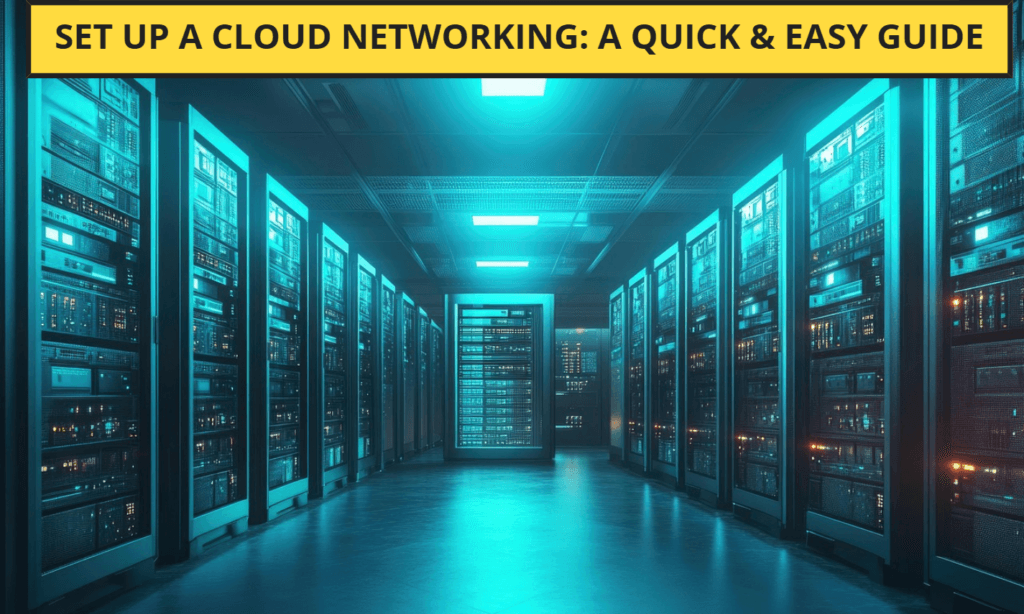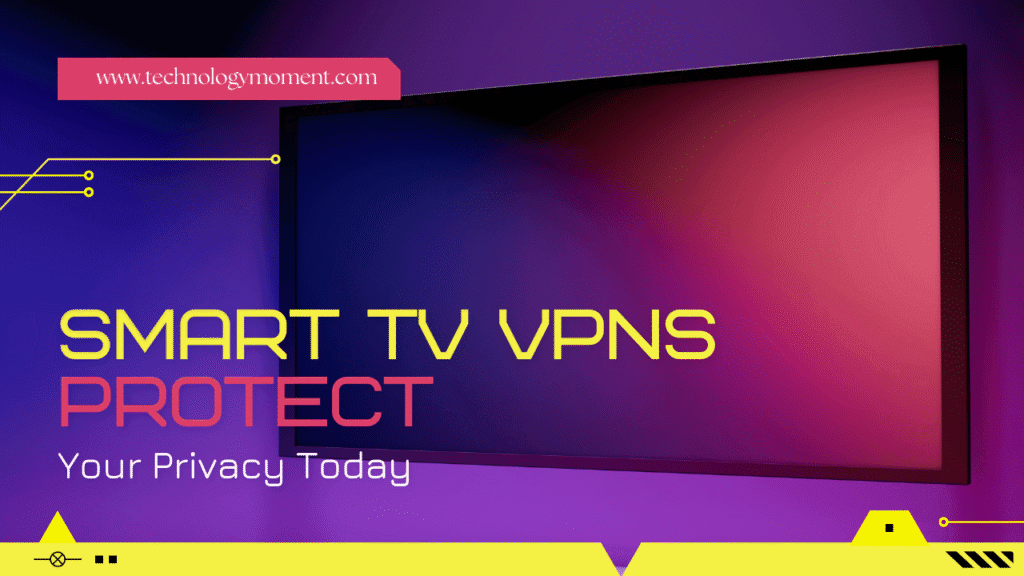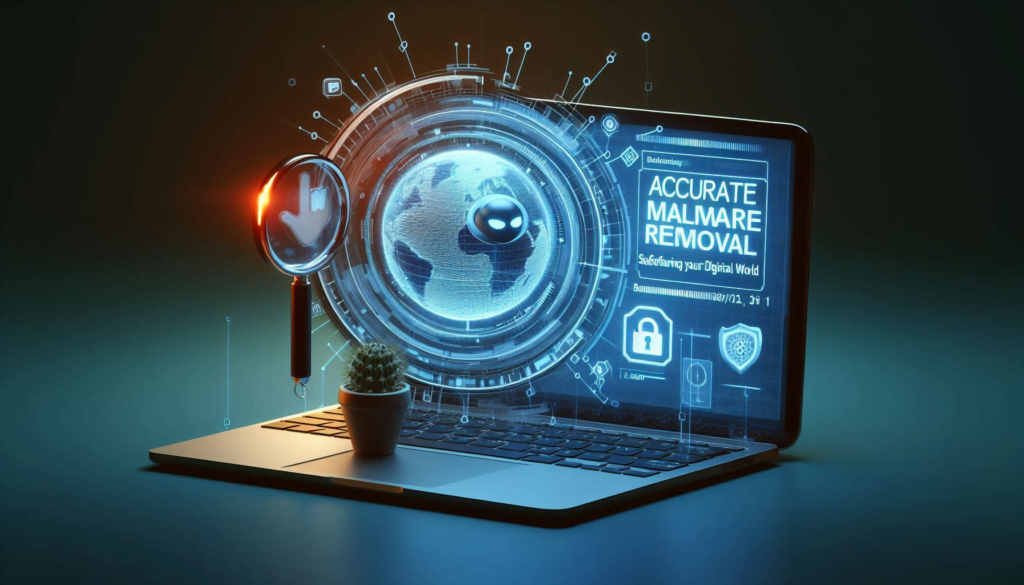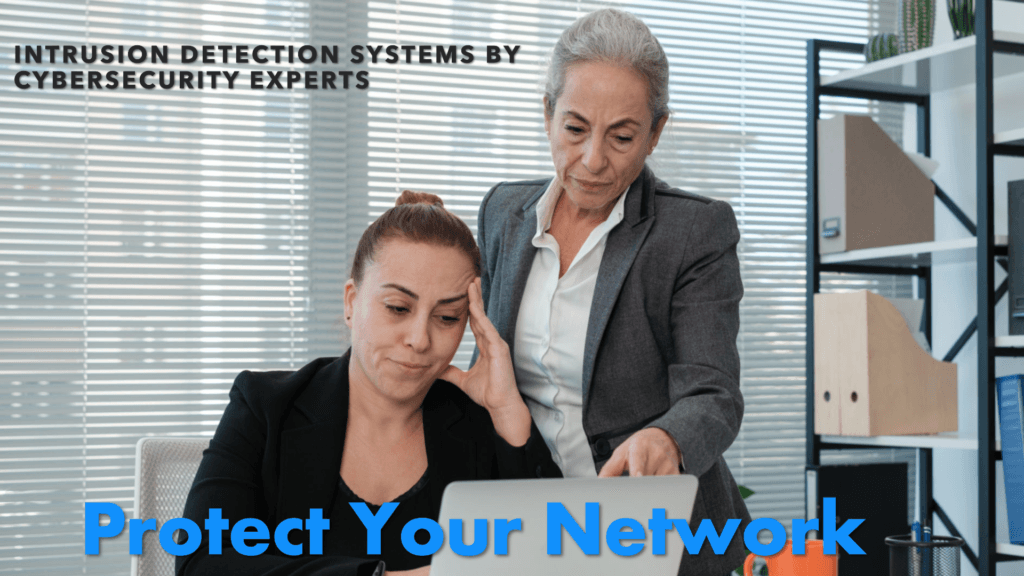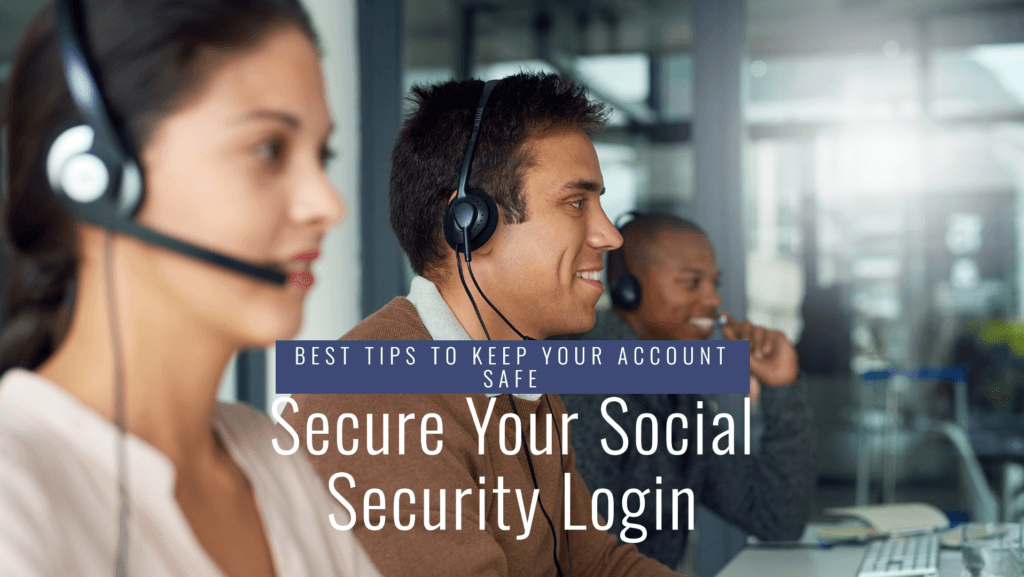Welcome to Technology Moment — your go-to destination for clear, insightful, and engaging content on today’s most essential tech trends. As the digital landscape grows more complex, staying secure online is more important than ever. In this post, we’re diving into a topic that affects millions of internet users: Free vs Paid VPNs. Which option is best for you? What are the trade-offs? We’ll break down the pros and cons of each, helping you make an informed decision about your online privacy and security. Stay tuned and let’s navigate the world of VPNs together!
In today’s digital landscape, privacy and security have become essential concerns for internet users. From securing personal information to bypassing regional restrictions on streaming content, VPNs (Virtual Private Networks) are now a go-to tool for many people. But when choosing a VPN, one question often arises: Should you opt for a free VPN or invest in a paid version?
This decision isn’t as straightforward as it may seem. Free VPNs may sound appealing due to their cost-free nature, but they often come with limitations and hidden trade-offs. On the other hand, paid VPNs promise robust features and better security, but at a financial cost.
In this blog post, we’ll dive deep into the key differences between free and paid VPNs, helping you make an informed decision based on your needs, usage habits, and budget. Whether you’re a casual browser or a privacy-conscious tech enthusiast, understanding the pros and cons of each option is essential for selecting the VPN that’s right for you.
What Is a VPN and How Does It Work?
A VPN (Virtual Private Network) is a tool that provides users with a secure and private connection to the internet. It essentially creates a “tunnel” between your device and the internet, encrypting your data and masking your online activities from prying eyes, such as hackers, internet service providers (ISPs), or even government surveillance.
How a VPN Works
To understand how a VPN functions, let’s break down the key steps involved:
- Connecting to a VPN Server: When you activate a VPN, your device connects to a remote server run by the VPN service. This server becomes the middleman between you and the internet.
- Encryption of Data: The VPN encrypts all the data traveling between your device and the internet. Encryption scrambles your information, making it unreadable to unauthorized parties.
- Assigning a New IP Address: Your real IP address, which can reveal your geographic location, is hidden and replaced with the IP address of the VPN server.
- Data Transmission: After encryption and rerouting, your data is sent securely through the VPN server to its destination. The process is seamless and happens in the background while you browse, stream, or perform any online activity.
Example of VPN in Action
Let’s say you’re sitting in a coffee shop using public Wi-Fi, a notorious hotspot for hackers. Without a VPN, your online activity is visible and vulnerable. Hackers could potentially access sensitive information such as your passwords or credit card details.
However, with a VPN enabled:
- Your data becomes encrypted, making it unreadable to anyone attempting to intercept it.
- The hackers will only see scrambled information that is useless to them.
- Your identity and location remain hidden, providing anonymity.
Key Benefits of Using a VPN
- Security: Protects against data theft on unsecured networks
- Privacy: Hides your browsing activities from ISPs and advertisers
- Access: Allows you to bypass geographic restrictions on websites and streaming services
- Anonymity: Shields your true identity by masking your IP address
Table of Contents
Why You Need a VPN
Whether you’re a casual internet user or someone who frequently handles sensitive data, a Virtual Private Network (VPN) can be a valuable tool for maintaining privacy, security, and access to online content without restrictions. Let’s break down some key reasons why you might need a VPN:
1. Security on Public Wi-Fi
Public Wi-Fi networks, such as those in cafes, airports, and hotels, are notorious for being unsecured and easy targets for hackers. When you connect to these networks without proper protection, your data—like login credentials, emails, and credit card details—can be intercepted by cybercriminals.
- A VPN encrypts your data, making it nearly impossible for hackers to steal your information.
- This is especially important when conducting financial transactions or accessing sensitive work files on public networks.
2. Protecting Personal Data
With the growing concern over data collection by advertisers, internet service providers (ISPs), and even government agencies, it’s essential to safeguard your online activities.
- VPNs hide your IP address, preventing websites and ISPs from tracking your online behavior.
- They help ensure that your browsing data remains private and out of the hands of third parties.
3. Accessing Region-Restricted Content
Have you ever tried to watch a video on YouTube or access a streaming platform only to see the message “This content is not available in your country”? That’s because some content is geo-blocked and restricted based on location.
- VPNs allow you to connect to servers in different regions, making it appear as though you’re browsing from another country.
- This lets you unlock streaming services, websites, and even certain social media platforms that might be blocked in your area.
4. Bypassing Censorship and Restrictions
In some countries, internet censorship is a significant issue, with many websites and services being restricted or banned.
- A VPN can help bypass these restrictions by masking your location and providing you with access to a free and open internet.
- This can be crucial for journalists, activists, and everyday users living under strict internet regulations.
5. Enhancing Privacy for Remote Work
The rise of remote work has made secure internet connections more critical than ever.
- VPNs are often used by companies to provide employees with secure access to internal networks and resources.
- They help protect sensitive business information from being exposed during remote work sessions.
6. Preventing Bandwidth Throttling
Internet service providers sometimes intentionally slow down your connection based on your online activities, such as streaming or torrenting.
- By encrypting your traffic and hiding your activities, a VPN can help prevent ISPs from throttling your connection.
7. Safe P2P File Sharing
If you engage in peer-to-peer (P2P) file sharing or torrenting, using a VPN is essential.
- Many ISPs monitor and restrict P2P traffic, but a VPN can help maintain anonymity and protect your privacy during file transfers.
Free vs Paid VPNs: A Quick Comparison
When it comes to choosing between free and paid VPNs, the decision largely depends on what you value most—cost savings, privacy, speed, or advanced features. Both options have their pros and cons, and understanding the key differences can help you make an informed choice.
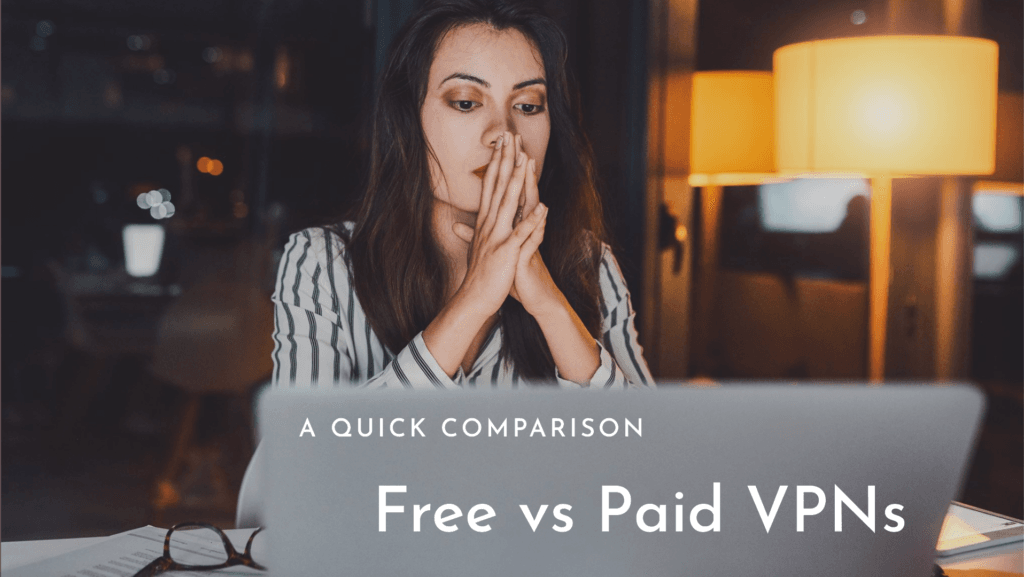
Top 5 Free VPNs
- ProtonVPN Free
- Pros: No data limit, strong encryption, and no ads.
- Cons: Limited servers in a few countries; slower speeds during peak hours.
- Best For: Users who prioritize privacy without worrying about speed.
- Windscribe Free
- Pros: Offers 10GB of free data per month and access to servers in multiple countries.
- Cons: Slower connections compared to the paid plan.
- Best For: Occasional browsing and moderate usage.
- TunnelBear Free
- Pros: Easy-to-use interface and secure encryption.
- Cons: 500MB monthly data cap.
- Best For: Quick, occasional browsing needs.
- Hide.me Free
- Pros: No logs policy, fast speeds, and no ads.
- Cons: 10GB monthly data limit.
- Best For: Privacy-conscious users who want occasional secure access.
- PrivadoVPN Free
- Pros: 10GB data per month, strong security features.
- Cons: Fewer servers compared to paid versions.
- Best For: Light browsing with secure connections.
Top 5 Paid VPNs
- ExpressVPN
- Pros: Fast speeds, excellent security, and vast server network in 90+ countries.
- Cons: Slightly higher price compared to competitors.
- Best For: Streaming, gaming, and high-security needs.
- NordVPN
- Pros: Double encryption, fast speeds, and a strict no-logs policy.
- Cons: Occasional slowdowns with certain servers.
- Best For: Users seeking a balance between privacy and speed.
- CyberGhost VPN
- Pros: Easy-to-use interface, optimized servers for streaming.
- Cons: Less effective in highly restrictive regions.
- Best For: Beginners and streaming enthusiasts.
- Surfshark
- Pros: Affordable pricing, unlimited devices, and strong encryption.
- Cons: Newer in the market compared to competitors.
- Best For: Families or users with multiple devices.
- Private Internet Access (PIA)
- Pros: Large server network, strong encryption, and highly customizable.
- Cons: Some servers can be slower.
- Best For: Tech-savvy users who prefer customization and control.
Benefits of Free VPNs
Free VPNs have become a popular choice for many internet users who want to protect their online privacy and access restricted content without spending money. While they come with certain limitations, there are notable advantages that make them appealing for specific user groups. Let’s explore these benefits in detail:
1. No Cost to Use: The most obvious benefit of a free VPN is that it doesn’t require any financial investment. Users can download and start using these services without worrying about subscription fees or payments. This makes free VPNs especially attractive to individuals who have limited budgets or only need occasional privacy protection.
2. Easy Setup and Availability : Free VPNs are generally user-friendly and easy to set up. Most of them offer simple installation processes, requiring just a few clicks to get started. Many providers even have apps available on major platforms like Windows, Android, iOS, and macOS, making it convenient for users to protect their devices quickly.
3. Good for Occasional or Casual Use : If you’re someone who doesn’t need a VPN all the time and only requires it for basic tasks, a free VPN can be sufficient. For example, if you’re traveling and want temporary protection when connecting to public Wi-Fi or need access to a website blocked in a specific location, a free VPN can get the job done without requiring a long-term subscription.
4. Test-Driving VPN Technology : Free VPNs provide a risk-free way for users to test VPN services and understand how they work. If you’re new to VPNs, starting with a free option allows you to get a feel for the technology, features, and overall benefits before deciding whether upgrading to a paid service makes sense.
5. Availability of Basic Security Features : Many free VPNs still offer essential security features such as encryption to protect data from prying eyes. While the level of security may not match that of paid services, it can still provide a level of protection that may be sufficient for certain activities like basic browsing.
6. Bypassing Simple Content Restrictions : Free VPNs can help users bypass some simple content restrictions. For instance, accessing news websites, blogs, or online content blocked in certain regions might be possible with a free VPN. However, this may not always work for more sophisticated restrictions like those imposed by major streaming services.
7. No Long-Term Commitment : Since there are no contracts or subscription obligations, users can switch between different free VPNs without being tied down. This flexibility allows users to explore various providers and find one that best meets their needs.
Drawbacks of Free VPNs
While free VPNs can seem like an attractive option due to their lack of subscription fees, they come with several significant drawbacks that can compromise your security, privacy, and overall user experience. Here’s a detailed breakdown:
1. Limited Features : Free VPN services often provide a bare-bones experience. While they can help you connect to the internet through a virtual private network, they typically come with limited features compared to paid services. For example, free VPNs may only offer a handful of servers, restricting your ability to choose your desired location. They may also lack important features like advanced encryption protocols, kill switches, or split tunneling, which can significantly reduce your overall online security and browsing experience.
2. Slower Speeds : One of the most common complaints about free VPNs is that they tend to slow down your internet connection. Free VPN providers often have fewer servers, and the servers they do offer are crowded with many users trying to access them at once. This overload can cause a noticeable drop in speed, making it difficult to stream videos, play games, or browse websites without constant buffering or lag. Since free VPNs don’t charge users, they usually don’t invest much in high-speed infrastructure or prioritize bandwidth for free users, further diminishing the quality of service.
3. Questionable Privacy Practices : Free VPNs often come with hidden costs—your privacy. While VPNs are designed to protect your personal information, some free VPN services may do the opposite by collecting and selling your data to third parties. Since free VPNs are not generating revenue through subscription fees, they may monetize your data by tracking your online activities and sharing that information with advertisers. This practice can undermine the core purpose of using a VPN, which is to protect your privacy and anonymity online.
Moreover, many free VPN providers don’t have clear privacy policies, or they may offer vague or misleading statements about how they handle user data. Without a strict no-logs policy, your browsing history could be stored and handed over to authorities or other parties if requested, putting your sensitive information at risk.
4. Data Usage Restrictions : Another significant drawback of free VPNs is data caps or usage limits. Many free VPN providers restrict the amount of data you can use each month, leaving you unable to fully take advantage of the VPN service. Once you hit the data cap, you may either be disconnected, forced to upgrade to a paid version, or have your internet speeds throttled down. This can be frustrating, especially if you’re using the VPN for activities like streaming, downloading, or browsing a lot of content that consumes large amounts of data.
5. Ads and Malware Risks : To make money and keep their services free, some VPNs bombard you with ads while using their service. These ads can be intrusive and reduce the overall user experience. Even worse, certain free VPN services have been found to carry hidden risks, such as malware or malicious software. Some free VPNs may inject ads or tracking cookies into your web traffic, compromising your online security. This can make you more vulnerable to phishing attacks or other types of cybercrime.
In some extreme cases, free VPN providers have been caught redirecting users to fraudulent websites or even selling users’ private data to third parties without their consent. This further emphasizes the importance of choosing a reputable VPN service—preferably a paid one—with transparent practices and a proven track record of protecting users’ data.
6. No Customer Support : Most free VPN services don’t offer customer support, or they provide very limited support through email or forums. If you encounter issues such as connection problems, data breaches, or slow speeds, you might be left in the dark with no way to resolve them. On the other hand, paid VPN services typically provide 24/7 customer support via live chat, email, or even phone, ensuring that any problems you face can be quickly addressed by knowledgeable support teams.
7. Legal and Ethical Concerns : In some cases, free VPNs might not be based in countries with strong data protection laws. This increases the risk that your data could be sold or handed over to foreign governments, especially if the VPN provider operates in a jurisdiction with weaker privacy protections. Additionally, some free VPN services have been known to have ethical concerns surrounding their data collection practices, or they might offer untrustworthy services that compromise user security.
Advantages of Paid VPNs
When it comes to choosing between free and paid VPNs, the advantages of opting for a paid version stand out, especially for users who prioritize security, speed, and reliability. Here’s a detailed look at the key benefits of paid VPNs:
1. Advanced Security Features
Paid VPN services usually come with a wider range of security features compared to free alternatives. These include:
- Stronger Encryption: Paid VPNs tend to use stronger encryption protocols, such as AES-256 bit encryption, which makes it much harder for third parties to intercept or decipher your data. This ensures a higher level of protection when browsing, especially on unsecured networks like public Wi-Fi.
- Secure Protocols: Most paid VPNs offer the latest and most secure tunneling protocols, such as OpenVPN, WireGuard, or IKEv2. These protocols are not only more secure but also faster compared to the older protocols used by many free VPNs.
- Kill Switch and DNS Leak Protection: Paid VPNs often include a kill switch, which automatically disconnects your internet if the VPN connection drops, preventing any accidental exposure of your data. Additionally, DNS leak protection ensures that your browsing activity doesn’t leak to third-party servers.
2. Faster and More Reliable Connections
One of the significant downsides of free VPNs is that they often have limited server resources and too many users competing for bandwidth, leading to slow connection speeds. With a paid VPN, you get access to more robust servers, resulting in:
- Faster Speeds: Paid VPN providers usually have high-speed servers optimized for performance. Whether you’re streaming movies, gaming, or just browsing, paid VPNs can handle high traffic loads without affecting your connection speed. This is especially important if you’re using a VPN for activities that require real-time performance, such as video conferencing or online gaming.
- More Server Locations: Paid VPNs offer a broader range of server locations globally. This allows you to connect to a server that is closer to your location or one in a specific country. Having access to a variety of server locations can also help improve your internet speed by avoiding overcrowded servers.
3. Access to More Server Locations
One of the key advantages of paid VPNs is their vast network of servers across various countries. Free VPNs typically have a small selection of servers, which limits your ability to bypass geo-restrictions or access region-specific content. With a paid VPN:
- Global Server Access: Paid VPN services allow you to choose from a vast selection of server locations, giving you the ability to access content from all over the world. Whether you’re trying to access U.S. Netflix, avoid geo-blocking on YouTube, or use regional services in other countries, a paid VPN provides the flexibility to do so.
- Optimized Servers for Specific Use Cases: Some paid VPNs offer servers that are specifically optimized for certain tasks, such as streaming, torrenting, or gaming. These specialized servers ensure that you get the best possible performance for the task you’re performing, without compromising security or speed.
4. No Data Caps or Bandwidth Throttling
Many free VPNs come with limitations that restrict how much data you can use each month. These limits often result in throttled speeds or the inability to access large files or stream content. With a paid VPN, there are usually no such restrictions:
- Unlimited Data Usage: Paid VPN services typically provide unlimited data usage, meaning you can stream, browse, and download as much as you want without worrying about hitting a data cap. This is ideal for users who need constant access to the internet without interruptions.
- No Bandwidth Throttling: Some free VPNs impose bandwidth throttling, which can significantly slow down your connection, especially when streaming or downloading large files. Paid VPN services typically avoid such practices, ensuring a seamless experience with fast and consistent speeds.
5. No Advertisements
Free VPN services are often supported by advertisements, which can be intrusive and annoying. These ads can disrupt your browsing experience and even compromise your privacy, as they might track your online behavior. With a paid VPN:
- Ad-Free Experience: One of the main perks of paid VPNs is that they offer an ad-free browsing experience. You won’t have to deal with pop-ups, banners, or other intrusive ads that might slow down your internet connection or expose your data to advertisers.
6. Customer Support
Paid VPN providers usually offer 24/7 customer support to assist with any issues you might encounter. Whether you’re experiencing connection problems, need help setting up the service, or have billing-related queries, paid VPNs provide reliable and prompt customer support, often through live chat or email.
- Premium Support Options: In contrast, free VPNs often lack dedicated customer service, or offer minimal support that may not be available 24/7. This makes it difficult to resolve issues promptly if you face any connectivity problems.
7. No Compromise on Privacy and Security
Free VPNs often face concerns about logging user data or selling it to third-party advertisers, which is a significant privacy risk. Paid VPNs, on the other hand, are typically committed to maintaining their users’ privacy with strong no-logs policies:
- Strict No-Logs Policies: Paid VPN services are more likely to have clear and reliable no-logs policies, meaning they don’t store any information about your browsing activities. This ensures your online actions remain private and secure.
- Transparency: Many paid VPN providers are transparent about their privacy practices, often undergoing independent audits to verify that they adhere to their no-logs policies. This provides additional peace of mind for users who are concerned about their online privacy.
Disadvantages of Paid VPNs
While paid VPN services come with numerous advantages like enhanced security, faster speeds, and access to global servers, they aren’t without their drawbacks. Here are some of the most common disadvantages you should consider before committing to a paid VPN:
1. Subscription Costs
One of the most significant downsides of paid VPNs is the cost. Unlike free VPNs that require no financial investment, paid VPNs typically require you to choose a subscription plan, which can range from a few dollars per month to more expensive annual plans. These costs can add up over time, especially for users who need to subscribe to VPN services for multiple devices or across several family members.
- Monthly vs. Annual Plans: Most paid VPN services offer a discount for long-term commitments, but the monthly payments might still feel like a burden for users who only need a VPN for occasional use.
- Hidden Fees: Sometimes, a “discounted” price for the first few months can increase later on.
2. Overwhelming Choices in the Market
With so many VPN providers to choose from, picking the right one can be overwhelming. There’s no one-size-fits-all solution, and each VPN service offers different features, pricing plans, and levels of service. The competition among VPN companies is intense, which can lead to a confusing array of options that may leave you uncertain about which one best suits your needs.
- Feature Overload: Some VPN providers come with an array of extra features, like dedicated IP addresses or advanced split tunneling. While these may be useful for some users, they can be unnecessary or confusing for others.
- Too Many Choices: For beginners or those who simply need a VPN for basic browsing, the sheer number of available options can lead to “analysis paralysis,” where it’s difficult to make a decision.
3. Risk of Non-Refundable Payments
Many paid VPN services offer a trial period or money-back guarantee, but some users still find it hard to get refunds if they aren’t satisfied with the service. Some VPN providers may have complex refund policies that make it difficult to get your money back, or they may require you to meet specific conditions (such as using the VPN for a certain number of days) before qualifying for a refund.
- Refund Process: Even when a refund is available, the process can be tedious or time-consuming.
- Limited Refund Windows: Some VPN services only offer refunds within a short window (e.g., 30 days), which might not give users enough time to properly test the service.
4. Performance Issues
Although paid VPNs generally provide better speeds and reliability than free alternatives, they are not always immune to performance issues. Users may occasionally experience slower speeds during peak hours or in certain regions. While paid VPNs often provide access to more server locations, the performance can still be affected by the location of the servers and the volume of users connected at the same time.
- Server Congestion: Popular servers in high-demand regions may get congested, resulting in slower speeds for users.
- Distance to Server: The further you are from the VPN server you’re connected to, the slower your internet connection might be, even with a paid VPN.
5. Potential for Data Collection or Privacy Issues
Though paid VPN services generally prioritize privacy, not all of them have the same level of commitment to user data protection. Some VPN providers might keep logs of your activity, or they may share your data with third parties for advertising purposes. While many paid VPNs offer “no-log” policies, it’s important to do thorough research on the provider’s privacy policies to ensure your data is being handled appropriately.
- Data Logging: Some paid VPNs may collect minimal user data (e.g., email addresses, payment details), which could be used for marketing purposes or shared with partners.
- Jurisdiction Issues: Some VPNs are based in countries with data retention laws or where governments can demand access to user data. This could potentially compromise your privacy, even if the service claims to have a no-logs policy.
6. Additional Device Limitations
Paid VPN services typically allow you to connect multiple devices at once, but there are often limitations. Most services will let you connect anywhere from 3 to 6 devices simultaneously, and some may require an upgrade for more connections. If you need to use a VPN on a lot of devices, you may find that the service is either insufficient or that you need to pay extra for additional device support.
- Device Caps: Users with many devices (smartphones, laptops, tablets, etc.) may need to purchase additional connections or subscriptions.
- Extra Costs: Certain VPN services charge extra for each additional device or feature, which may not be worth the added cost for some users.
Security Concerns with Free VPNs
While free VPNs seem like an appealing option—offering a way to secure your internet traffic without spending a dime—there are some significant security concerns that come with using them. Here are the most important issues you should be aware of:
1. Data Logging and Privacy Issues
One of the biggest concerns with free VPNs is their tendency to log your data. While a VPN’s main purpose is to protect your privacy, many free services collect and store user data, including browsing history, connection times, and even your IP address. This defeats the very purpose of using a VPN, which is to maintain anonymity.
Some free VPN providers may also share or sell your data to third parties, such as advertisers or marketers, to make money. This is a stark contrast to the strict no-logs policy that many paid VPN services uphold, where they promise not to collect any data that could be used to trace your online activity back to you.
2. Malware and Adware Risks
Many free VPN providers, especially lesser-known ones, are infamous for bundling malware or adware with their service. This can lead to a variety of problems, such as:
- Spyware: Malicious software designed to monitor your activity and steal your personal information.
- Pop-up ads or unwanted redirects: Adware can lead to a constant stream of pop-up ads while browsing, which can be intrusive and frustrating.
These additional threats could compromise your device’s security, potentially making your data less safe than if you weren’t using a VPN at all. Always check user reviews and app store ratings before downloading any free VPN to make sure it’s not a hidden source of malware.
3. Weak Encryption and Security Protocols
Many of them use outdated or weak encryption protocols, which can leave your data vulnerable to hackers. VPNs are supposed to encrypt your internet traffic, but if they’re using outdated protocols (like PPTP, which is considered insecure), your personal data could be exposed.
Paid VPN services, on the other hand, often use industry-standard encryption, such as AES-256, along with the latest security protocols (like OpenVPN or WireGuard), which offer much higher levels of protection.
4. Limited IP and DNS Leak Protection
IP and DNS leaks are another significant concern with free VPNs. These leaks happen when your VPN fails to properly hide your true IP address or DNS queries, exposing your real location and online activity to third parties. Free VPNs often don’t offer sufficient protection against these leaks, which can compromise your anonymity.
Paid VPNs generally include built-in features to prevent IP and DNS leaks, ensuring your privacy is maintained even if the VPN connection drops unexpectedly.
5. Lack of Customer Support and Troubleshooting
Another security-related issue with free VPNs is the lack of reliable customer support. If you encounter a security breach or experience connection issues, you may not be able to get the help you need. Without timely support, your data could remain at risk for longer than necessary.
Paid VPNs usually offer 24/7 customer support, including live chat, email, and troubleshooting guides, ensuring that any issues you face can be addressed promptly.
6. Unclear Ownership and Trustworthiness
Many free VPN services are not fully transparent about their ownership or the company behind the service. Without a clear understanding of who is running the service, it’s difficult to trust that your data is being handled responsibly.
Paid VPNs, particularly well-established ones, often have a clear and reputable track record, and some even undergo independent audits to ensure their privacy policies are being followed.
7. Limited Security Features
Free VPNs typically provide only basic features, leaving out important security tools like kill switches, which automatically disconnect you from the internet if the VPN fails. This means if the VPN connection drops, your real IP could be exposed.
Many paid VPNs include advanced features like:
- Kill switches to block data from being exposed if the connection fails
- Multi-hop connections for added security
- Obfuscated servers to hide the fact that you’re using a VPN, useful in countries with strict internet censorship
These security tools are critical for users who are highly concerned about their privacy and data protection.
Speed and Performance Comparison: Free VPN vs Paid VPN
When it comes to choosing a VPN, speed and performance are crucial factors to consider, especially for activities like streaming, gaming, and browsing. Both free and paid VPNs can vary widely in terms of how they affect your internet speed and overall performance. Let’s break down the differences between free and paid VPNs in terms of speed and reliability.
Speed of Free VPNs
Free VPNs often come with significant speed limitations. Here are a few reasons why:
- Server Overload: Free VPN services tend to have fewer servers available for their users. This means that many users are sharing the same server at the same time, which can lead to slower speeds due to server congestion. If a free VPN has hundreds or thousands of users on a single server, the connection will likely slow down significantly.
- Limited Bandwidth: Some free VPNs impose data limits or bandwidth throttling, restricting the amount of data you can use or limiting the maximum speed of your connection. This is especially noticeable when you’re trying to stream high-definition content or download large files.
- No Priority for Free Users: Paid users typically get higher priority access to servers, meaning they are less likely to experience slow speeds. Free users don’t have this privilege and often experience slower speeds as a result.
- Reduced Performance on Global Servers: Free VPNs often only provide access to a small number of server locations. This limitation can cause slower performance, especially if you’re connecting to servers far from your physical location. The further the server, the slower the connection speed due to higher latency.
Speed of Paid VPNs
Paid VPNs, on the other hand, tend to offer much faster and more consistent speeds. Here’s why:
- Dedicated Servers: Paid VPN services usually offer access to a larger pool of servers spread across various regions, providing more choices and better overall performance. These servers are typically less crowded, leading to faster connection speeds even during peak usage times.
- No Data Caps: With paid VPNs, you often have unlimited data usage and no throttling of your internet speed. This means you can stream in 4K, download large files, or play online games without worrying about interruptions or slowdowns.
- Optimized for Speed: Many paid VPN providers offer specific servers optimized for high-speed activities like streaming or gaming. These servers are designed to provide the best performance and minimal latency, which can significantly enhance your overall experience.
- Higher Encryption Protocols: Although encryption can sometimes slow down a connection, most paid VPNs offer advanced encryption protocols like OpenVPN or WireGuard, which strike a balance between strong security and high-speed performance. Some paid VPNs even offer “light” encryption modes that optimize speed while maintaining security.
Testing Speed and Performance
If you’re unsure which VPN service provides the best speed, you can always run speed tests on both free and paid VPNs. Here are some key metrics to watch out for:
- Ping (Latency): The time it takes for a packet of data to travel from your device to the server and back. Lower ping is better, especially for activities like online gaming or video calls.
- Download Speed: A higher download speed will make browsing and streaming smoother.
- Upload Speed: This refers to the speed at which data is uploaded from your device to the server. It is important for activities like uploading files or streaming live video.
In general, paid VPNs will provide you with lower ping, faster download speeds, and more reliable connections. Free VPNs, while usable for basic tasks, might struggle with higher-demand activities like streaming or gaming, and you may experience interruptions, buffering, and longer load times.
Server Availability and Location Coverage
When deciding between a free or paid VPN, one of the most crucial factors to consider is server availability and location coverage. This is a key element that differentiates premium VPN services from free alternatives. Let’s break this down:
What Are VPN Servers?
A VPN server acts as a relay point for your internet traffic. When you connect to a VPN, your data is routed through a server located in a specific country or region, which helps to mask your real IP address and encrypt your data. The more servers a VPN has and the more locations they cover, the better it is for users who want to access content from different parts of the world.
Why Server Locations Matter
The location of a VPN server plays a significant role in the overall performance and usability of the service. Here’s why it matters:
- Access to Region-Restricted Content : Different countries restrict access to certain websites and services based on your location. For example, streaming platforms like Netflix, Hulu, and BBC iPlayer have different content libraries depending on where you’re accessing them from. If you’re in the US and want to watch shows that are only available in the UK, you need a VPN that offers servers in the UK. More server locations mean a wider range of content to unblock and access from different regions.
- Speed and Performance : Server location can also impact connection speed. The farther away the server is from your physical location, the slower your internet connection might be. With paid VPNs, you usually have access to a wider selection of servers, including those that are optimized for performance and speed. Free VPNs may have limited server options, meaning you might need to connect to servers that are farther away or less reliable, which can result in slower speeds and buffering.
- Avoiding Congestion : High-quality VPN services have multiple servers in various regions, reducing the load on any single server. This is essential for maintaining a good speed. Free VPNs often have fewer servers, which means they can become crowded quickly, especially during peak hours. This can lead to slow performance, lagging, and poor user experience.
Server Availability in Free vs. Paid VPNs
- Free VPNs : Providers usually offer a limited number of servers and locations. In some cases, they may only offer servers in a handful of countries or even restrict you to a single location. This can severely limit your ability to access content or browse freely, especially if the server you connect to is overcrowded or located far from your actual location. Additionally, free VPNs often offer no advanced options for selecting servers, meaning you might be automatically connected to the first available server without the ability to choose one that best suits your needs. In some cases, free VPN services can also rotate server locations automatically, further reducing your control over the experience.
- Paid VPNs : On the other hand, paid VPNs usually provide a vast selection of servers in numerous countries and continents. Popular paid VPNs can have servers in 50 or more countries, sometimes even spanning dozens of cities within a single country. The greater the number of available servers and their geographical diversity, the more control users have over their browsing experience. For example, if you need a high-speed connection to access content in a particular country, you can easily choose the closest server in a specific city. You can also switch between server locations to avoid server congestion, ensuring you have fast and uninterrupted service. In some cases, premium VPNs even allow you to select servers optimized for specific tasks like streaming, torrenting, or gaming.
Benefits of Extensive Server Coverage in Paid VPNs
- Bypassing Censorship : Some countries impose heavy censorship and internet restrictions. Paid VPNs often offer servers in multiple countries, allowing users in censored regions (like China or the Middle East) to access the open internet by connecting to a server in a country with fewer restrictions.
- Better Streaming Quality : With the right server, you can enjoy streaming in HD or 4K quality without issues. Paid VPNs with extensive server options often have optimized servers for streaming, providing high speeds that prevent buffering and lagging while watching movies or shows.
- Avoiding IP Blacklisting : Paid VPNs frequently rotate IP addresses and provide a much broader range of IPs across multiple servers. This can help you avoid issues like IP blacklisting, where your IP address gets flagged and blocked by websites or services. If one server’s IP gets blocked, you can easily switch to another one.
Privacy and Data Protection
When it comes to VPNs, privacy and data protection are some of the most important aspects to consider, especially with the growing concerns around online surveillance, data breaches, and digital footprints. Here’s how both free and paid VPNs handle these issues differently.
Privacy Issues with Free VPNs
While free VPNs might seem tempting because of their no-cost appeal, they often come with significant privacy risks. One of the biggest concerns is data logging. Many free VPN providers, in an effort to monetize their services, track and log your online activity. This data can include websites you visit, your IP address, and even personal information you input during browsing sessions. In the worst cases, this data may be sold to third parties, such as advertisers or even government agencies.
For instance, free VPNs may show you targeted ads based on your browsing habits or may sell your data to companies for profit. This defeats the very purpose of using a VPN, which is to protect your online privacy. Some free VPN services have been found guilty of collecting and selling user data, a practice that significantly compromises user privacy.
Additionally, free VPNs often lack robust encryption protocols, which makes your data vulnerable to hacking and interception. Without strong encryption, even if your data isn’t being logged or sold, it’s still not fully protected, especially on insecure networks like public Wi-Fi.
Privacy and Data Protection in Paid VPNs
Paid VPNs, on the other hand, usually have stricter no-logs policies, meaning they don’t store your browsing data. This is crucial for ensuring that even if the VPN provider is asked by authorities to hand over data, there is nothing to provide. These VPNs often go a step further by publishing independent audits of their privacy practices to prove that they don’t collect or store any user information.
Paid VPNs also tend to offer better security, using industry-standard encryption protocols (such as AES-256 encryption), which ensures that your data is securely encrypted during transmission. This encryption prevents hackers, government surveillance, or even the VPN provider itself from intercepting your data.
Some paid VPNs also offer split tunneling features, which give you the option to choose which apps use the VPN connection and which don’t, offering more control over your privacy.
Additionally, paid VPN services often come with features such as kill switches, which automatically disconnect you from the internet if the VPN connection drops, ensuring that your true IP address is never exposed while the VPN is inactive.
Third-Party Audits and Transparency
Many high-quality paid VPN providers undergo third-party audits to ensure that they are adhering to their privacy policies and are not violating user trust. These audits provide an added layer of transparency, as independent organizations check whether the VPN provider is actually following through on their commitment to user privacy.
Some VPNs even offer open-source code, allowing experts to inspect the software for potential vulnerabilities or hidden data collection practices. This transparency helps foster trust in paid VPN providers, as users know they are not only paying for a service but also getting a product that is regularly vetted for privacy protection.
Location and Jurisdiction
Another factor to consider is the jurisdiction under which a VPN operates. Countries with strict privacy laws (such as those outside the “Five Eyes” intelligence-sharing alliance) are more favorable for VPN services, as they are less likely to be forced to share user data with government agencies. Many premium VPN services operate in countries with strong privacy protections and ensure that they are not subject to data retention laws that would force them to store or share users’ data.
In contrast, many free VPNs are based in countries with weak data protection laws, which may put user data at risk if authorities request access to it.
Which VPN Is Right for You?
Choosing the right VPN can feel like navigating a maze, especially with so many options available, but it ultimately depends on your specific needs, usage habits, and priorities. Here’s how you can figure out whether a free VPN or a paid VPN is the best choice for you.
1. Casual Browsing vs. Heavy Usage
- Casual Browsing: If you mostly use the internet for light tasks like checking emails, browsing social media, or reading articles, a free VPN might suffice. Free VPNs are typically enough to protect your connection on public Wi-Fi and offer basic privacy features. However, don’t expect high speeds or unlimited server options. If you’re only looking for a bit of security while browsing or occasional access to region-restricted content, a free VPN will do the job.
- Heavy Usage or Streaming: If you’re an avid gamer, streamer, or someone who regularly uses the internet for work, a paid VPN is the way to go. Paid VPNs offer superior performance with faster speeds, no data caps, and better encryption protocols, which are important for activities like streaming movies in HD or gaming online without lag. Additionally, paid services often provide access to a larger range of server locations, helping you avoid slow speeds during peak hours.
2. Budget Considerations
- Free VPNs: If you’re on a tight budget, free VPNs might be your go-to. They don’t require any upfront cost, and most of them are quite easy to install. For those who just need a VPN occasionally and don’t mind the limitations, free VPNs can offer a solid solution. However, you may need to compromise on privacy, speed, or features.
- Paid VPNs: While the cost of paid VPNs varies, most quality services offer affordable monthly or yearly plans. Paid VPNs come with a wider range of features that can justify the cost. If privacy and security are critical to you (e.g., you need to keep sensitive work information safe), or if you need to access geo-restricted content from multiple countries, a paid VPN provides a far better value. Also, with a paid service, you often get customer support, which free services lack.
3. Security Priorities
- Free VPNs: Free VPNs may seem appealing at first, but many of them come with significant privacy concerns. Some free VPN services have been known to log user data, inject ads, or even sell browsing activity to third-party companies. If you’re primarily looking for privacy protection and anonymity, a free VPN may not be the best choice. They often use weaker encryption and are more vulnerable to data breaches, which can compromise your security.
- Paid VPNs: If you’re serious about protecting your privacy, a paid VPN is your best bet. Most paid VPN services have a strict “no-logs” policy, meaning they don’t track your browsing history. Additionally, paid VPNs often provide better encryption protocols and advanced features like DNS leak protection and kill switches to prevent your data from being exposed if the VPN connection drops.
4. Specific Use Cases: What Are You Trying to Do?
- Unblocking Content: If you’re trying to access region-blocked content on streaming platforms like Netflix, Hulu, or BBC iPlayer, a paid VPN will be far more effective. Free VPNs may not have access to the servers or IP addresses required to bypass these restrictions. In contrast, paid services often have dedicated streaming servers optimized for this purpose, offering better speeds and reliability.
- Online Privacy and Security: If your primary concern is securing your data on public Wi-Fi networks or ensuring your online activities are private, you’ll need to assess how important those features are. For general online security, a free VPN might help. But for a high level of security with robust encryption, you should go with a paid VPN.
5. Customer Support
- Free VPNs: When using a free VPN, you usually don’t get any customer support. If you run into an issue, you’re typically left to solve it on your own, whether that’s troubleshooting a connection issue or figuring out why the VPN isn’t working with a certain service.
- Paid VPNs: Paid VPNs, on the other hand, often offer round-the-clock customer support. If you run into issues with the service, you can usually contact their support team through live chat, email, or help centers, ensuring you’re never stuck for long.
Recommended Free and Paid VPN Providers
When considering a VPN, whether free or paid, it’s essential to choose a provider that meets your needs in terms of security, speed, and privacy. Here, we’ll highlight some reliable options for both free and paid VPNs, along with a brief overview of their features to help you make an informed decision.

Recommended Free VPN Providers
While free VPNs can be a good starting point for casual users or those testing out VPNs for the first time, they often come with limitations. That said, there are still a few trustworthy free VPN providers that prioritize your privacy and security.
- ProtonVPN (Free Version)
- Features: ProtonVPN’s free version offers unlimited bandwidth and no logs policy, meaning they won’t track your activity. It provides high-level security with AES-256 encryption.
- Limitations: Free users have access to only a few server locations (United States, Netherlands, and Japan), and speeds can be slower compared to the paid version.
- Best For: Users who prioritize privacy and security but can compromise on speed and server locations.
- Windscribe (Free Version)
- Features: Windscribe’s free VPN gives you 10GB of data per month, with access to servers in 10 countries. It also offers strong encryption and a no-logs policy.
- Limitations: The free version comes with a limited data allowance, which may not be enough for heavy users or streaming. Servers are also limited compared to the paid version.
- Best For: Occasional browsing and light streaming or those who need more data than other free VPNs provide.
- TunnelBear (Free Version)
- Features: TunnelBear is user-friendly and great for beginners. It offers AES-256 encryption and a simple interface. The free version provides access to servers in over 20 countries.
- Limitations: The free version is restricted to 500MB of data per month, which isn’t sufficient for frequent browsing or streaming.
- Best For: Casual users who only need a VPN for very light browsing or testing VPN features.
- Hotspot Shield (Free Version)
- Features: Hotspot Shield offers a free version that includes 500MB of data per day (about 15GB per month). It uses military-grade encryption to secure your connection.
- Limitations: The free version limits you to one server location (United States) and has ads. It also doesn’t support Netflix or other streaming services.
- Best For: Occasional web browsing and those looking for a simple VPN solution.
Recommended Paid VPN Providers
While free VPNs are suitable for light users, paid VPNs offer significantly more features, including better speed, security, privacy, and server access. Below are some of the top-rated paid VPN providers that cater to users who need a higher level of protection and performance.
- ExpressVPN
- Features: ExpressVPN is known for its high-speed servers, strong security features (AES-256 encryption), and a wide range of server locations in 94 countries. It also has a strict no-logs policy and supports advanced features like split tunneling and a kill switch.
- Pricing: Starts at around $6.67 per month with a 30-day money-back guarantee.
- Best For: Users who need fast, secure, and reliable access to websites and streaming services worldwide.
- NordVPN
- Features: NordVPN offers double encryption, a large number of servers in over 60 countries, and a no-logs policy. It also includes extra features such as CyberSec (which blocks ads and malware) and a kill switch.
- Pricing: Starting at around $3.71 per month with a 30-day money-back guarantee.
- Best For: Security-conscious users who want top-tier protection and fast speeds for activities like torrenting and streaming.
- CyberGhost VPN
- Features: CyberGhost is known for its user-friendly interface, strong encryption, and no-logs policy. It has over 6,000 servers across 90 countries, making it ideal for accessing geo-restricted content like streaming services.
- Pricing: Starts at around $2.25 per month with a 45-day money-back guarantee.
- Best For: Users who want a VPN that’s optimized for streaming, with dedicated servers for Netflix, Hulu, and more.
- Private Internet Access (PIA)
- Features: PIA provides robust security features, including AES-256 encryption, a kill switch, and a strict no-logs policy. It also offers a large number of servers in over 70 countries and allows up to 10 simultaneous connections.
- Pricing: Starts at around $2.03 per month with a 30-day money-back guarantee.
- Best For: Users who want a flexible VPN with multiple simultaneous connections and robust privacy features.
- Surfshark
- Features: Surfshark is a highly affordable VPN provider offering unlimited simultaneous connections, strong encryption, and a no-logs policy. It also provides extra features like ad-blocking and split tunneling.
- Pricing: Starts at around $2.30 per month with a 30-day money-back guarantee.
- Best For: Users who need a budget-friendly VPN with the ability to connect unlimited devices.
How to Choose Between Free and Paid VPNs
- Free VPNs: Ideal for casual users, occasional browsing, or trying out VPNs. They’re a good starting point, but come with limited features, slower speeds, and potential privacy concerns.
- Paid VPNs: Offer better overall performance, including faster speeds, more server options, stronger privacy protection, and more advanced features. Paid options are ideal for heavy users, streaming enthusiasts, and anyone concerned about online privacy and security.
Conclusion: Making the Right Choice Between Free and Paid VPNs
When it comes to deciding between a free or paid VPN, the right choice ultimately depends on your needs, priorities, and how often you plan to use the VPN.
For casual users who only need basic protection when browsing, free VPNs may seem like an attractive option. They offer a no-cost solution, making them appealing for occasional tasks such as accessing public Wi-Fi securely or watching region-locked content on streaming platforms. However, as you dive deeper into what you’re giving up in exchange for a free service—such as data limitations, slower speeds, and questionable privacy practices—it becomes clear that a free VPN is often just a temporary fix.
On the other hand, a paid VPN offers a more robust solution. With enhanced security protocols, faster speeds, better access to global server locations, and a strict no-logs policy, paid VPNs are ideal for users who prioritize privacy, online anonymity, and unimpeded access to content. While there is a cost involved, the value for money in terms of performance, security, and customer support makes it a more reliable long-term option.
If privacy and data protection are paramount to you, it’s wise to invest in a reputable paid VPN. These services are less likely to compromise your data and provide greater peace of mind knowing that your personal information is not being sold or exploited. Moreover, paid VPNs can handle heavy traffic loads without significantly impacting your connection speed, making them the best choice for streaming, gaming, or torrenting.
Ultimately, the decision comes down to the level of protection you need and how much you are willing to spend for it. If you only need a VPN for light browsing or occasional use, free options may suffice, but if you want a top-tier service with high performance and guaranteed security, a paid VPN is the smarter choice.
By weighing the pros and cons of both options, you can choose the VPN that suits your usage habits, provides the best value, and aligns with your security goals.
FAQs
Are free VPNs safe to use?
While some free VPN services are safe, many pose significant risks. Free VPNs often lack the security measures necessary to protect your data adequately. Some may even log your browsing activity and sell it to third-party advertisers, undermining the very reason you’re using a VPN in the first place. Furthermore, free VPNs are more likely to have vulnerabilities, such as poor encryption protocols, which can make your online activities susceptible to cyberattacks. If you want to ensure the highest level of security and privacy, it’s generally better to opt for a reputable paid VPN service that offers stronger encryption and a strict no-logs policy.
How much does a good paid VPN cost?
The cost of a paid VPN can vary depending on the provider and the features it offers. On average, paid VPNs cost between $3 to $12 per month, with some premium services offering annual plans that cost around $40 to $100 per year. While this might seem like an added expense, the benefits — such as faster speeds, better privacy protection, and access to more server locations — often outweigh the costs. Many paid VPN providers also offer discounts or free trials, so you can test the service before committing long-term.
Can a free VPN unblock streaming services like Netflix?
Most free VPNs have limited capabilities when it comes to unblocking streaming services like Netflix, Hulu, or BBC iPlayer. Streaming platforms are often quick to detect and block VPN traffic, especially from free providers that have limited IP addresses and slower speeds. Many free VPNs don’t have the technology or server infrastructure to bypass these blocks, so you might end up with frustrating buffering or being unable to access content at all. Paid VPNs, on the other hand, tend to have dedicated servers optimized for streaming and offer better access to region-specific content, making them the better choice for streaming enthusiasts.
How do I know if a VPN keeps my data private?
The best way to verify a VPN’s privacy practices is to check its privacy policy and terms of service. Trustworthy VPNs will have a strict “no-logs” policy, meaning they do not store any of your browsing or connection data. Reputable paid VPN providers, such as ExpressVPN and NordVPN, have third-party audits to back up their claims of not keeping logs. With free VPNs, however, you often can’t be as sure of their privacy practices. Some free VPNs might even sell your data to advertisers. It’s crucial to read reviews from independent sources and check the provider’s track record to ensure your privacy is respected.
Is it worth paying for a VPN?
Whether it’s worth paying for a VPN largely depends on how you use it. If you only need a VPN for basic privacy while browsing, a free VPN might suffice. However, if you need high-speed connections, access to a wide variety of servers around the world, and guaranteed privacy protection (especially if you’re working with sensitive data), investing in a paid VPN service is a much better option. Paid VPNs also provide better customer support, more reliable performance, and features that enhance your overall online experience, such as kill switches, DNS leak protection, and multi-device compatibility.



